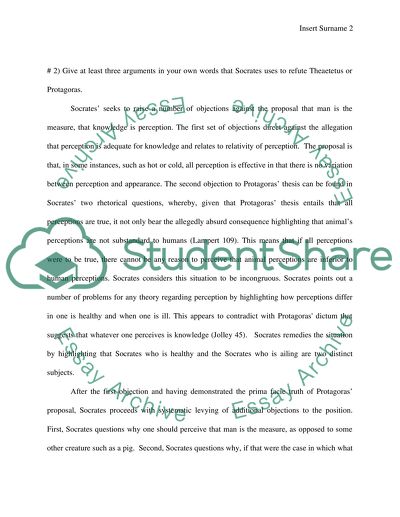The Theaetetus Essay Example | Topics and Well Written Essays - 750 words. Retrieved from https://studentshare.org/philosophy/1482744-essay
The Theaetetus Essay Example | Topics and Well Written Essays - 750 Words. https://studentshare.org/philosophy/1482744-essay.


